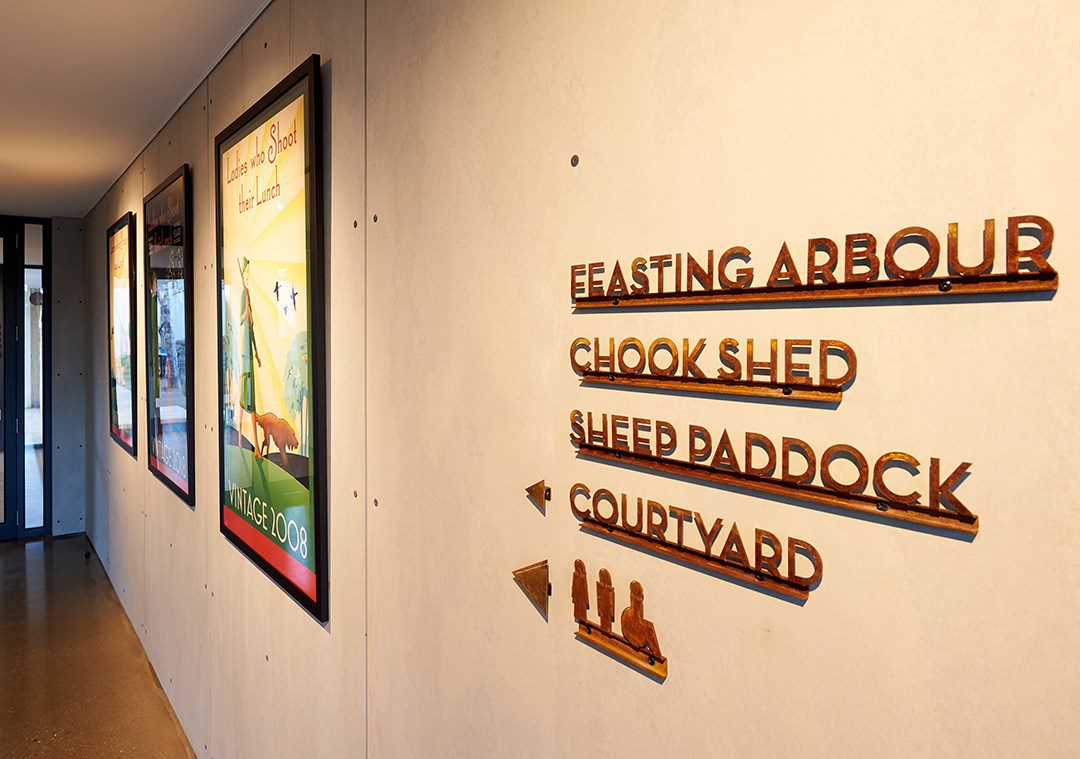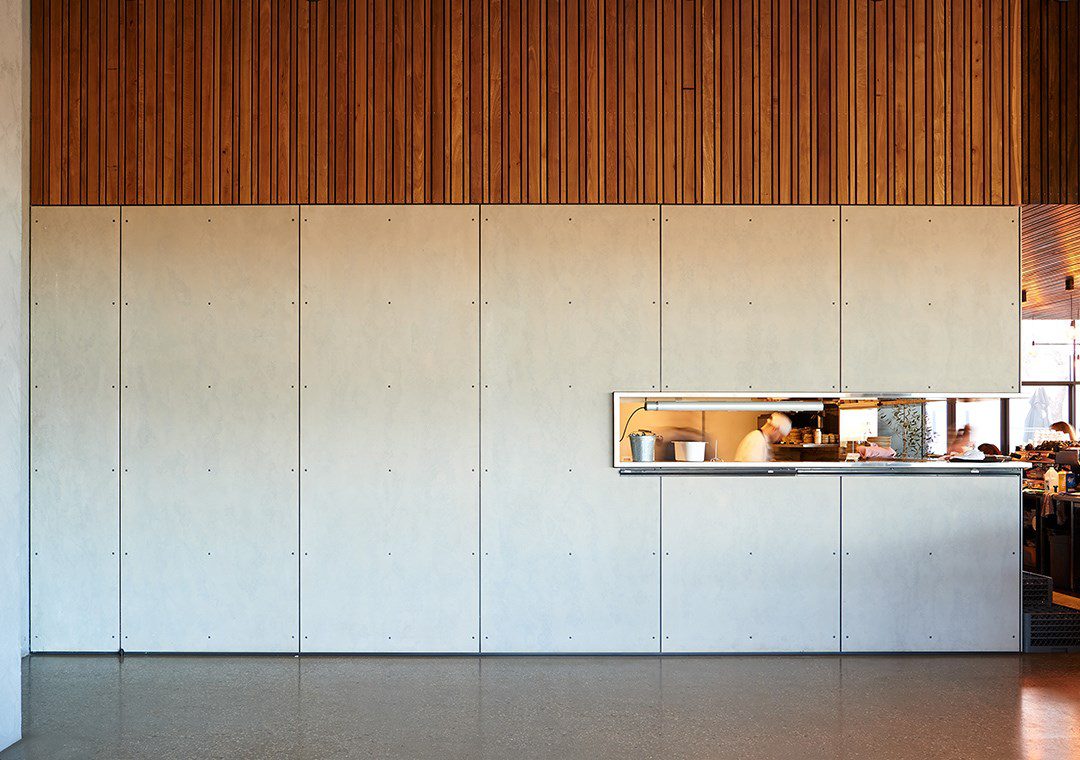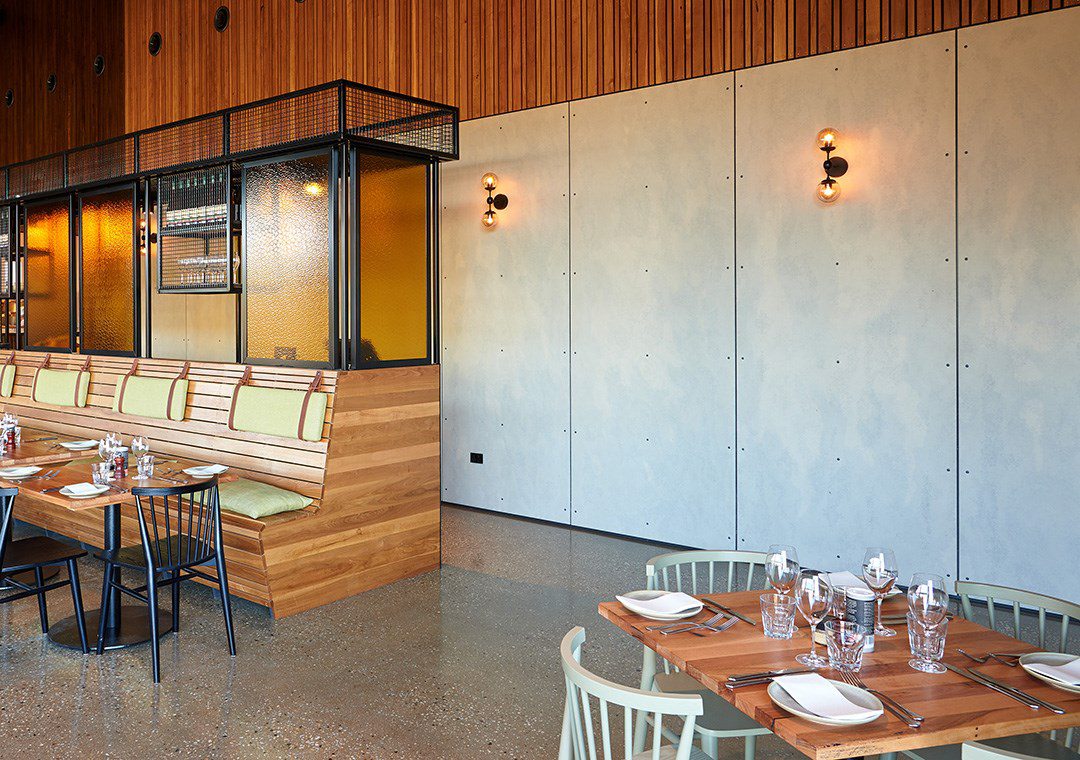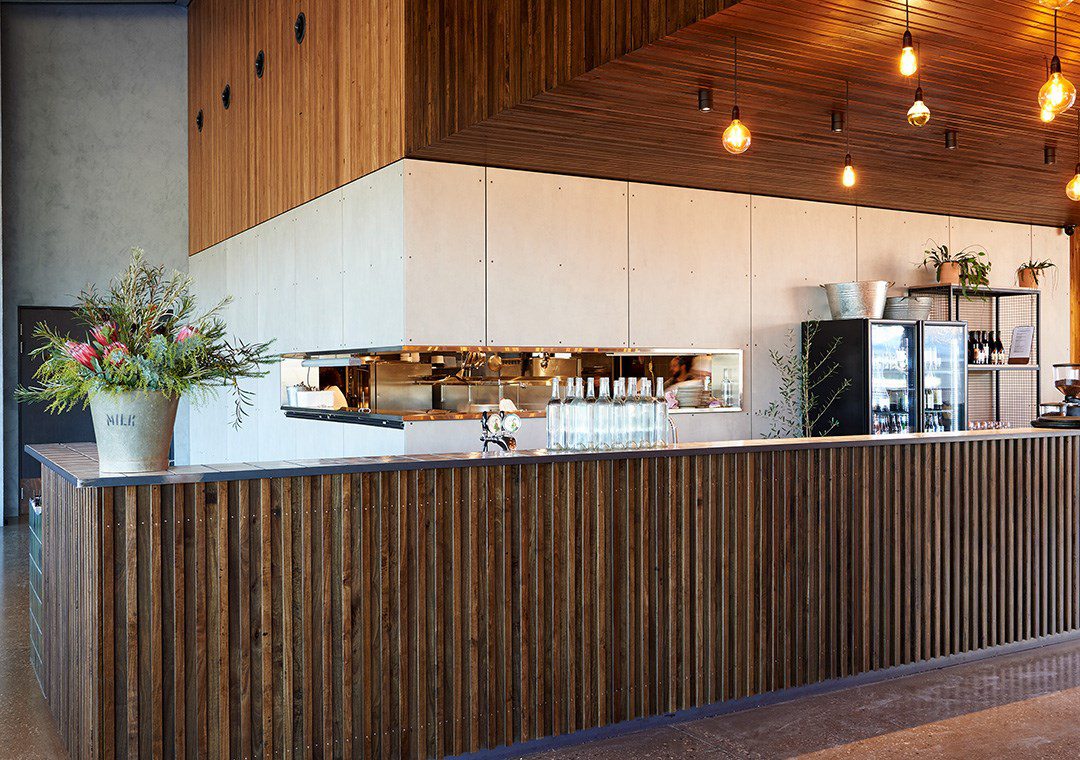Cemintel’s Barestone adds a modern flavour to winery’s rustic aesthetic. Awarded Victoria's Best Tourism Winery three years in a row, Fowles Wine was ready to rejuvenate its cellar door and restaurant to offer visitors a more sophisticated dining experience. However, the area’s favourite winery didn’t want to lose the rustic features that had long charmed visitors.
Through thoughtful design and material selections, including CSR Cemintel’s Barestone, the restaurant perfectly balances the new with the old.
The Fowles family has lived in the Strathbogie Ranges since the gold rush and throughout the generations have boasted farmers, auctioneers and lawyers. Current owner Matt Fowles, his wife Luise, and their team aim to produce wine with character and elegance.
For the new restaurant, Matt worked with freelance interior stylist, Jay Phillips, and Grant Hateley from Hateley Homes to develop a design concept that would seamlessly blend the farm and local heritage assets with modern materials.


“We wanted to create a welcoming environment for all; a space where people can come in their active wear or after the footy for a glass of wine, or they can get dressed up in suits and jackets and have a refined evening,” says Matt.
“Everything from the design through to the menu captures the essence of the Australian landscape, with a modern edge. We incorporated aspects of the region, farm and vineyard into the building using upcycled materials, complemented by bold design surfaces such as Cemintel’s Barestone,” concludes Matt.
Interior stylist, Jay, spearheaded the cellar door’s contemporary design.
“The local landscape is dotted with corrugated iron sheds. We have taken the winery’s iconic farmyard shed and created a beautiful restaurant and cellar door within its shell, without losing the structure’s identity,” says Jay.
“The family aren’t just wine producers, but passionate farmers and hunter-gatherers, so we have shown this story throughout the design,” says Jay.
Cemintel’s Barestone was chosen as a durable, lightweight material that would beautifully contrast against the rustic and warm woodgrain interior features of the original building.


“We wanted a rawness that reflects the farm, but a refinement befitting of a winery. Barestone’s natural finish worked perfectly with the rustic farmyard ambiance while also providing a level of sophistication,” says Matt.
Both Jay and Grant were in agreement regarding the use of bold, black rivets to secure the Barestone panels in place.
“We were embracing black hardware and finishes in other parts of the building and knew that the rivets would provide design continuity with their industrial aesthetic, without overpowering the other elements of the interior,” says Grant.
While Barestone is commonly used as an exterior cladding, the decision for its use inside on the project was based on both its form and function.


“Durability as well as fitting in with the rustic feel of the farm were the key elements in choosing materials for this design. Barestone was the product that delivered both the aesthetic and performance outcomes needed for the new restaurant,” says Grant.
Barestone’s water resistant and highly durable lightweight concrete panels are easy to install. The natural, contemporary finish doesn’t require painting and has a stain resistant coating applied, perfect for use in a high traffic commercial setting.
“One of the most beneficial aspects of Barestone is the maintenance, or lack thereof; you don’t have to paint it because it is pretreated, so if you get bumps and scrapes you can sand them off, versus having to paint and repaint,” says Grant.
The new design has garnered a wealth of positive feedback from customers, with the winery reporting that business is up fifty percent.
“The design has a warmth and subtlety to it that makes our customers feel at home, and that’s what a family winery is all about. Barestone allowed us to enhance the farms’ best assets to create a unique experience for our customers, friends and family,” concludes Matt.

Keep me informed
Keep me up-to-date with future news and info on Cemintel



